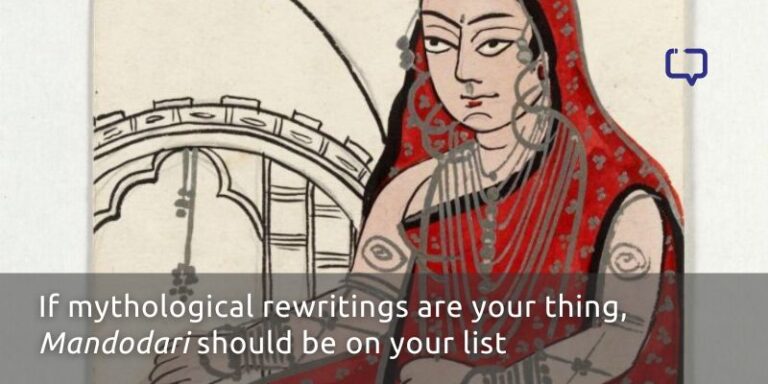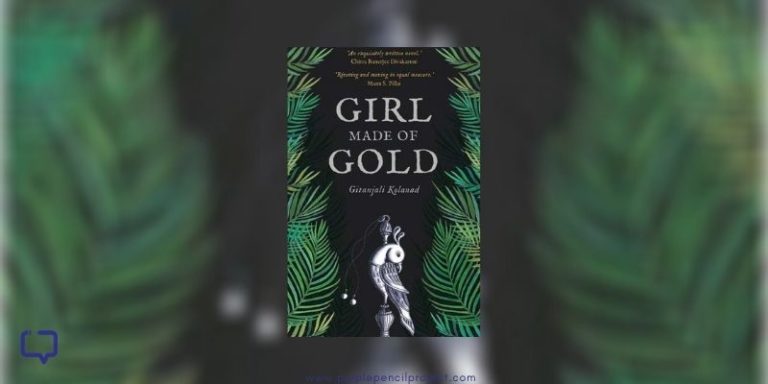Sachin Kundalkar’s latest Marathi book of essays, titled Nineteen Ninety, evokes nostalgia for the decade that shaped the course of his life.
We encourage you to buy books from a local bookstore. If that is not possible, please use the links on the page and support us. Thank you.
As someone who grew up in the ’90s, it’s easy to recognise the markers of that decade as highlighted in Sachin Kundalkar’s book: the ubiquitous Walkman that symbolised personal space before the advent of the mobile phone, the gift of travelling far and wide that became easily possible for many, and the inclination to read for entertainment in the absence of digital media.
Nineteen Ninety is the author and director’s ode to the decade that helped him define himself and influenced him to embark on a career in theatre and film.
The book comprises 21 essays written in Marathi where Kundalkar writes about journeys and important events in his life, and shares his thoughts on the creative process, the necessity of solitude, the beauty of classical music, and his strange fascination for prostitutes, mafia dons and mistresses. He also talks of important figures in his life and shares reminiscences from the time he spent with playwright Vijay Tendulkar.
Kundalkar is the author of the acclaimed Marathi novel Cobalt Blue (2006; translated to English by Jerry Pinto and re-released in 2013), and award-winning director of films such as Marathi Nirop (2007) and Gandha (2009); he also wrote and directed the Hindi film Aiyyaa (2012).
Back in time
In Nineteen Ninety, Kundalkar vividly describes his childhood and teenage years, and his exposure to the world of films while assisting filmmakers Sumitra Bhave and Sunil Sukthankar.
He paints a vivid picture of growing up in a middle-class family in Pune at a time of limited career choices (joining the world of theatre or films was unthinkable), of not wanting to repeat the mistakes of elders, and of feeling conscious of speaking in his mother tongue Marathi.
प्रत्येक माणूस एका दशकामुळे घडवला जातो, ओळखला जातो. तेच दशक त्या माणसाचं पोषण करते आणि काही काळाने तेच दशक त्या माणसाची मर्यादा बनते आणि त्याची जाणीव जुनी बनवते…आमची सौंदर्यदृष्टी, आमची राजकारणाची आणि सामाजिक जाणीव, आमचा आमच्या कामाकडे, आमच्या जगण्याकडे पाहायचा दृष्टीकोन, आमचे आवडते संगीत, चित्रपट आणि पुस्तक ह्या सगळ्यावर नव्वदीच्या दशकाचा फार मोठा प्रभाव आहे.
(Everyone is moulded by a particular decade, and is known by it. That decade nourishes that person and after a while, it also defines a boundary and eventually can make their thinking outdated… Our perception of beauty, awareness of politics and society, attitude towards work and living, our favourite songs, films and books were all defined by the ’90s, writes Kundalkar.)
It was a time when the simple gift of a walkman and headphones, and a camera that he buys for himself, meant freedom from society.
“ह्या तीन उपकरणांमुळे मी स्वतंत्र झालो आणि माझे खाजगी विश्व़ मी उभे केले.”
(These three gadgets made me independent and I could set up my personal universe.)
Other worlds
At the age of 23, he won a scholarship to study in Paris. The city played a seminal role in the author’s formative years, and he describes it as a “प्रयोगशाळा” or “laboratory”.
“पॅरिस हे शहर ही माझ्यासाठी एक व्यक्ती आहे, जागा नाही…पॅरिस शहराला हजारो वर्षांचा इतिहास असला तरी तितकाच ताजा आणि ज्वलंत वर्तमानकाळ आहे.”
(Paris, for me, is a person, not a place… The city encompasses thousands of years of history, but its present is just as vibrant and exciting.)
It was in Paris that Kundalkar had an epiphany: he understood the anger he felt for the city of his birth, for the corruption, the politics, and the outdated traditions. It was here that he felt the urge to break out of pigeonholes and explore newer places.
“पुण्याचा राग, शाळेचा राग, मराठी कवितांचा राग, सानेगुरुजींचा राग, नातेवाईकांचा राग.”
(I felt anger towards Pune, my school, Marathi poems, Sane Guruji, and my relatives.)
On an eternal journey
The book talks about journeys done on foot and within oneself. As a reader, one often feels familiar with a city one has only visited through books. On visiting Istanbul, he writes:
“ओरहान पामुक ह्या सुप्रसिद्ध तुर्की लेखकाच्या साहित्यामधून मी या शहराला आधी कितीतरी वेळा भेटलेलो आहे. मला या शहरातल्या रस्त्यांची नावे आणि काही भाग इथे येण्याआधीच माहिती आहेत. असे वाटतेय की, आपण इथलेच होतो. बरीच वर्षे दूर निघून गेलो होतो हे आता परत आलो आहोत.”
(In the works of the famous Turkish writer Orhan Pamuk, I have often read about this city. I already know the names of the streets and am familiar with some areas. I feel as if I was always here. After being away from this city, I have finally returned.)
Kundalkar describes his philosophy of travelling:
“मला ह्या शहराशी शांतपणे गप्पा मारायच्या आहेत. त्या मारताना मध्येच आला तर तो सुप्रसिद्ध राजवाडा मी पाहुन घेइन. संपूर्ण देश बघायची धावाधाव करणे शक्यच नाही. आपल्या मोजक्या आयुष्यात आणि मर्यादित आर्थिक परिस्थितीत अनेक शहरे आपण पाहू शकतो.”
(I want to have a quiet conversation with a city. If in the process, I come across a famous palace/monument, then I will visit it as well. It’s impossible to see a whole country. (But) Within our limited existence and budget, we can visit several cities…)
Some of the poignant essays are the ones where he recounts spending time with Vijay Tendulkar in his last moments at the hospital; and the essay, titled Fiction, where he writes of an attempt to commit suicide, and how people around him react to the event. The title keeps the reader guessing as to whether he is narrating a real incident or not.
Read Nineteen Ninety for its descriptions of solitude, aesthetics in the mundane, and to get an insight into the thought process of a creative soul.
Recommended for: Solitary creatures, literature/art lovers, people who want insights into the creative mind
Favourite quote:
In the works of the famous Turkish writer Orhan Pamuk, I have often read about this city. I already know the names of the streets and am familiar with some areas. I feel as if I was always here. After being away from this city, I have finally returned.
Suggested reading:
One Day We’ll All Be Dead and None of This Will Matter: Essays by author Scaachi Koul is a witty take on growing up as an immigrant, body positivity, and tackling issues of sexism and racism.
Disclaimer: The translations were done by the reviewer)





















